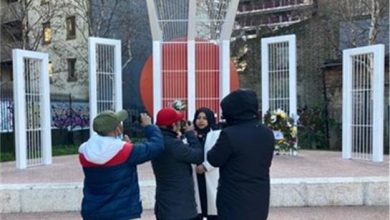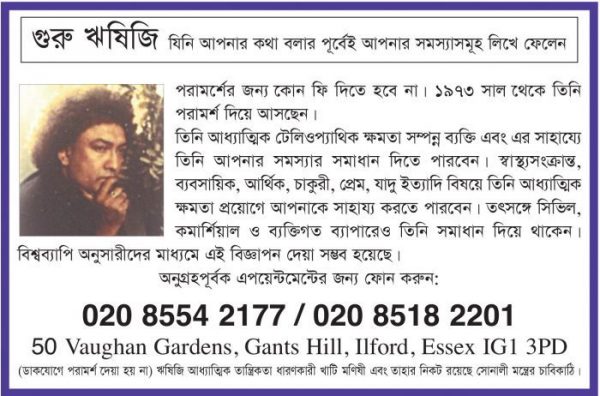Khaleda Zia: A Nobel Peace Prize Contender

“KZ’s long-standing commitment to democracy, human rights, and social justice makes her a compelling candidate for the Nobel Peace Prize“
By Asif Armani
In a world where conflict and discord often take centre stage, it is refreshing to celebrate individuals who have dedicated their lives to promoting peace, stability, and unity. Among these remarkable figures is Begum Khaleda Zia, the former Prime Minister of Bangladesh. She is affectionately addressed with a prefix “Begum” which means queen in Bengali. She is literally respected as a queen by millions of Bangladeshis for her indomitable spirit, unwavering commitment to people’s rights, and her tireless advocacy for the values of democracy, human rights, and the rule of law. Begum Khaleda Zia’s long-standing commitment to democracy, human rights, and social justice makes her a compelling candidate for the Nobel Peace Prize.
Begum Khaleda Zia: A Profile in Leadership
Born in 1945 in Bengal, British India, Begum Khaleda Zia emerged as one of Bangladesh’s most prominent political figures. Her journey into the world of politics was profoundly shaped by her experiences and her unwavering commitment to democracy and justice.
Begum Khaleda Zia’s political career began under the most challenging circumstances imaginable. Following the tragic assassination of her husband, General Ziaur Rahman, a wartime hero and one of the most beloved presidents in Bangladesh’s history, she stepped into the complex and often tumultuous realm of Bangladeshi politics.
One of her defining moments was her steadfast opposition to the military junta led by General Ershad, which lasted for an impressive nine years. Begum Khaleda Zia’s resilience and determination during this period galvanized the nation. Her leadership was instrumental in organizing and mobilizing the masses, ultimately leading to the successful toppling of the Ershad regime through a remarkable people’s mass movement.
A Legacy of Leadership
Begum Khaleda Zia’s journey towards becoming one of Bangladesh’s most influential political leaders began in the early 1980s when she assumed leadership of the Bangladesh Nationalist Party (BNP). In 1991, Begum Khaleda Zia achieved a significant milestone when she assumed power through free and fair elections, marking a new era for Bangladesh. Her tenure as Prime Minister witnessed numerous achievements, especially in the realms of promoting democracy, religious and ethnic harmony, and social justice.
Her tenure as Prime Minister from 1991-1996 and then from 2001 – 2006 marked a significant period of progress and development for the nation. Under her leadership, Bangladesh saw advancements in infrastructure, education, and healthcare, improving the lives of millions.
Advocate for Democracy
One of Begum Khaleda Zia’s most enduring contributions is her unwavering commitment to democratic values. It was Khaleda under whose charismatic leadership the autocratic regime of military ruler General Ershad came to a crashing halt when the later was deposed on a popular mass upsurge and she was elected the free and fair election held in 1991 under a caretaker government. She has consistently championed the principles of democracy, playing a pivotal role in shaping the political landscape of Bangladesh. Her dedication to upholding the democratic process in the face of adversity and political challenges demonstrates her resilience and determination to ensure that the voices of the people are heard.
Empowering Women
Begum Khaleda Zia has been an advocate for women’s rights and empowerment throughout her career. As the first woman to lead Bangladesh as Prime Minister, she shattered barriers and inspired countless women to pursue leadership roles in politics and other fields. Her commitment to gender equality has paved the way for progress and inclusivity in a country where women continue to strive for equal opportunities. During her premiership in Bangladesh, Begum Khaleda Zia took several significant steps to empower women and promote gender equality. While some of these initiatives may not have received as much international attention as others, they had a substantial impact on the lives of women in Bangladesh. Here are five notable actions she took:
- Women’s Education Empowerment: Begum Khaleda Zia’s government worked diligently to improve women’s access to education. One of the most groundbreaking initiatives was to provide free education for all female children. This bold step aimed to eliminate one of the primary barriers to girls’ education – financial constraints. Moreover, her government also introduced scholarships for female students, ensuring that girls had the opportunity to pursue higher education without worrying about the costs. This commitment to women’s education was a significant leap forward for gender equality in Bangladesh.
- Women’s Development Centres: Under Begum Khaleda Zia’s leadership, Women’s Development Centres were established throughout the country. These Centres served as hubs for women to access various resources, including vocational training, healthcare services, legal aid, and counselling. They played a vital role in enhancing women’s skills, boosting their self-confidence, and providing them with tools to become financially independent. These Centres were particularly beneficial for rural women who often faced limited opportunities.
- Advancing Women’s Representation in Parliament: During Begum Khaleda Zia’s tenure, Bangladesh witnessed a significant leap forward in the realm of women’s political participation. One of the most notable achievements was the introduction of a groundbreaking policy that reserved parliamentary seats for women, a commitment that extended for another 30 years. Not only did she extend this policy, but she also substantially increased the number of reserved seats for women from 30 to 45. This transformation meant that more women than ever before could now represent their constituencies and contribute to the nation’s decision-making processes.
What made this policy even more exceptional was its inclusivity. Begum Khaleda Zia’s government went a step further by enacting laws that ensured even opposition parties had their share of reserved women Members of Parliament (MPs), based on their proportional participation. This innovative approach was unprecedented and showcased her unwavering commitment to promoting women’s active involvement in the highest echelons of governance.
The introduction of reserved seats for women in parliament was not just a symbolic gesture; it was a concrete step toward fostering gender equality in Bangladesh’s political landscape. It aimed to ensure that women had a more prominent role in decision-making at the grassroots level and in shaping national policies. By providing a platform for women to engage in the country’s parliamentary affairs, Begum Khaleda Zia’s government empowered them to address issues that directly affected their communities.
This policy didn’t just acknowledge the importance of women’s voices in parliament; it actively promoted their participation. It recognized that a diverse and inclusive parliament was essential for representing the interests and concerns of the entire population. Through this affirmative action, Begum Khaleda Zia’s government elevated the status of women in Bangladeshi politics, setting a powerful example for the region and the world at large.
- Microcredit Initiatives: The government under Begum Khaleda Zia recognized the importance of economic empowerment for women. It supported microcredit programs that specifically targeted women entrepreneurs and small business owners. These programs offered financial support, training, and resources to help women start and expand their businesses. By fostering economic independence, these initiatives had a lasting impact on women’s self-sufficiency and socio-economic status.
- Awareness Campaigns on Women’s Rights: Begum Khaleda Zia’s government also initiated awareness campaigns to educate women about their rights. These campaigns aimed to empower women by informing them about their legal rights, including issues related to property ownership, inheritance, and protection against domestic violence. By raising awareness and providing legal education, women were better equipped to assert their rights and seek justice when necessary.
While these initiatives are just a snapshot of Begum Khaleda Zia’s efforts to empower women during her premiership, they reflect her government’s commitment to gender equality and women’s rights in Bangladesh. Her legacy in this regard continues to influence policies and programs that promote women’s empowerment in the country.
Humanitarian Efforts
Beyond her political role, Begum Khaleda Zia has been actively involved in humanitarian efforts. She has shown compassion and empathy for those affected by natural disasters and other crises. Her support for relief and rehabilitation efforts in the aftermath of devastating events has provided a ray of hope to countless individuals facing dire circumstances.
Promoting National Unity
In a nation as diverse as Bangladesh, fostering unity among different ethnic and religious communities is of paramount importance. Begum Khaleda Zia’s leadership has been marked by efforts to bridge divides and promote national harmony. Her commitment to inclusivity and social cohesion has contributed to Bangladesh’s stability and progress.
Begum Khaleda Zia’s remarkable tenure as Prime Minister of Bangladesh was marked not only by her commitment to democratic principles but also by her profound efforts to promote harmony among the diverse population of the nation. Bangladesh, with its rich tapestry of faiths and ethnicities, faced numerous challenges in maintaining social cohesion. Begum Khaleda Zia, however, demonstrated exceptional leadership in this regard.
One of her significant achievements was fostering religious harmony among the predominantly Muslim population and the minority religious communities, such as Hindus, Buddhists, and Christians. She recognized the importance of respecting and upholding the rights of religious minorities, ensuring their places of worship were protected, and safeguarding their cultural heritage. By actively engaging with leaders of these communities, she created an atmosphere of inclusivity and tolerance, reinforcing the idea that all Bangladeshis, regardless of their faith, were equal citizens under the law.
Furthermore, Begum Khaleda Zia’s administration also championed the rights of the indigenous and ethnic communities in Bangladesh. These communities had often been marginalized and faced socio-economic disparities. Under her leadership, steps were taken to rectify these injustices. She advocated for affirmative action policies that aimed to improve the living standards and opportunities for these groups. By granting them access to education, healthcare, and economic development programs, she sought to empower indigenous and ethnic communities, ensuring they had a more equitable stake in the nation’s progress.
In essence, Begum Khaleda Zia’s role in promoting harmony among people of diverse faiths and ethnicities in Bangladesh was pivotal. Her dedication to inclusivity, respect for minority rights, and efforts to uplift marginalized communities exemplified her commitment to building a more harmonious and united nation. Through her visionary leadership, Bangladesh took significant strides towards realizing its full potential as a diverse yet harmonious society.
A Crusader for Peace, Democracy and the Rule of Law
Begum Khaleda Zia’s commitment to peace, democracy, and the rule of law in Bangladesh is a testament to her unwavering dedication to her country and its people. Throughout her political career, she faced numerous challenges and sacrifices, yet she consistently prioritized the stability and well-being of Bangladesh over personal gain or vendettas. Notably, she became the first head of government in the world to establish provisions for a nonpartisan caretaker government, a critical step in ensuring that national general elections were conducted freely and fairly. Her commitment to the democratic process, even in the face of adversity, underscored her belief in the power of the people’s voices and their right to choose their leaders without interference.
Despite enduring imprisonment on multiple occasions at the hands of various military regimes and governments, including her ongoing incarceration since 2018, Begum Khaleda Zia chose the path of peaceful resistance and activism. She could have mobilized her vast and dedicated supporters to oppose the government forcibly, potentially leading to chaos and instability. However, she consistently upheld the principles of non-violence, the rule of law, and democratic governance.
Regrettably, the judicial system’s perceived bias, working under the direction of the current government, has resulted in her imprisonment. Her continued detention stands as a stark reminder of the challenges facing democracy and justice in Bangladesh. While Begum Khaleda Zia remains incarcerated, her commitment to peaceful means of protest and her enduring belief in the democratic process serve as a source of inspiration for those who continue to advocate for democracy, human rights, and the rule of law in the country.
A Nobel Peace Prize Contender
In light of her significant contributions to democracy, women’s empowerment, humanitarianism, and national unity, Begum Khaleda Zia stands as a formidable contender for the Nobel Peace Prize in 2023, owing to her extraordinary contributions to peace, harmony, and social justice within her nation. Her legacy is a testament to the profound impact a leader can have on the wellbeing of her people and the broader world. Her legacy of leadership and advocacy for peace resonates not only in Bangladesh but also across the globe. There are several compelling reasons why Begum Khaleda Zia deserves this prestigious recognition.
Firstly, Begum Khaleda Zia’s unwavering commitment to democratic principles and the rule of law has been instrumental in upholding peace and stability in Bangladesh. She played a pioneering role by introducing provisions for a nonpartisan caretaker government to oversee national general elections, ensuring a level playing field and safeguarding the integrity of the democratic process. In doing so, she exemplified her dedication to fair and transparent elections, an essential pillar of peaceful governance.
Secondly, Begum Khaleda Zia’s efforts to promote harmony among the diverse religious and ethnic communities in Bangladesh are commendable. Her leadership fostered an environment of inclusivity and respect for minority rights, ensuring that people of various faiths and backgrounds lived together harmoniously. Her commitment to protecting the cultural heritage and religious sites of minority groups showcased her dedication to upholding religious and cultural harmony, a fundamental component of peace-building.
Additionally, Begum Khaleda Zia’s focus on empowering indigenous and ethnic communities through affirmative action policies has significantly contributed to social justice and harmony within Bangladesh. By addressing the socio-economic disparities these communities faced, she created pathways for greater equality and social cohesion.
Furthermore, Begum Khaleda Zia’s personal sacrifices for the cause of democracy and justice must not be overlooked. Despite enduring multiple imprisonments, she consistently chose peaceful means to advocate for her beliefs, avoiding actions that could have destabilized the nation. Her steadfast commitment to non-violence and adherence to democratic principles serve as an inspiring example to leaders worldwide.
As the world continues to grapple with challenges such as conflict, inequality, and climate change, recognizing leaders like Begum Khaleda Zia is essential. Her lifelong dedication to peace and justice serves as an inspiration and a testament to the enduring power of diplomacy and dialogue and the pursuit of a more harmonious world.
In a time when the Nobel Peace Prize seeks individuals who have made substantial contributions to the promotion of peace and human rights, Begum Khaleda Zia’s name shines brightly as a symbol of hope, resilience, and unwavering commitment to a more peaceful world.
In summary, Begum Khaleda Zia’s remarkable contributions to peace, democracy, religious and ethnic harmony, and social justice make her an outstanding candidate for the Nobel Peace Prize in 2023. Her legacy of promoting inclusivity, upholding democratic values, and striving for a more equitable society in Bangladesh and beyond underscores her worthiness for this prestigious recognition. By honouring Begum Khaleda Zia with the Nobel Peace Prize, the international community would not only celebrate her achievements but also send a powerful message affirming the importance of peaceful governance, social cohesion, and the rule of law on a global scale.
All peace loving nations and individuals in the world may earnestly beseech the Norwegian Nobel Committee to look closely at the profile of Begum Khaleda Zia and her extraordinary contributions to peace, harmony, and social justice. Her legacy of promoting inclusivity, upholding democratic values, and striving for a more equitable society underscores her worthiness for the prestigious Nobel Peace Prize. We implore the Norwegian Nobel Committee to consider Begum Khaleda Zia as a Nobel Peace Prize laureate in 2023. Her life’s work exemplifies the very ideals that Alfred Nobel envisioned when he established this prestigious award—an unwavering commitment to the pursuit of peace and the betterment of humanity.
Asif Armani: A writer and researcher, based in Washington DC.







